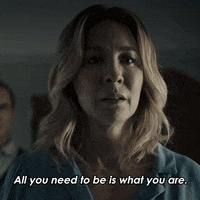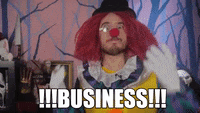Hello and welcome back to The Marketing Kable, where I'm taking you along on my journey to discover ideas, voices and campaigns that can inspire us.
something to watch
a.i.m never gonna give you up. One of my friends, a hotshot Business Analyst at an international bank, recently shared an anecdote about her father's A.I. anxiety.
Last year, he insisted that she leave her job and get a PhD in Economics from an American university. She tried really hard, but the stars didn't align. Then he encouraged her to get a better job. With this, she was extremely successful. Now that she has this fancy new job, her father's latest fear is A.I.
"They're saying A.I. is going to replace lots of jobs - you better take some courses and upskill so you can survive", he told her.
My friend has had enough, but parents will be parents, I guess.
The anxiety around A.I. replacing human jobs isn't unique to my friend's father. Ever since ChatGPT arrived and changed the world overnight, there's been a collective wave of concern about the "A.I. threat". How much of a threat will it be? Time will tell.
For now, let's look at this cheeky billboard put up by Impact, a Belgian job platform for construction job seekers:
Here's why I love it
My favourite adjective: simple. It's simple! So unbelievably simple, and yet it makes its point so well.
It leverages cultural conversation to direct attention to itself without appearing forced or superficial. It backs up its own point with actual, tangible proof, which brings us to number 3.
The placement of the billboard is genius. By putting it up on a building under construction, Impact offers a visible reminder that A.I. can't really do everything. There are loads of jobs that demand human effort.
It courts virality. I found this on Twitter - but the actual billboard is probably somewhere in Belgium. So clearly, somebody found it worthy of photographing and sharing with others. That's definitely a marketing win!
There were even conversations about the offending space between Chat and GPT, but I don't think that error was deliberate.
something to read
just do 5 things. The most dangerous distractions are the ones you love, but that don't love you back."
This line from a Forbes article by James Clear felt like a punch in the gut. I'm a chronically distracted person, stuck in a loop of "starts a task-gets distracted-bashes self-chooses another distraction to feel better-hates self for choosing distraction over task-tries to restart task-gets distracted again". It's so fun being me. Sigh.
My distractions definitely, absolutely do not love me back. And I know they're the most dangerous ones (Reddit and YouTube for me, what are yours?).
At the same time, I'm the type of person who thinks if your to-do list doesn't have fifteen things that you MUST TICK OFF EVERY SINGLE DAY, you're good for nothing (not you, just me). So when
Join me, won't you?
something to listen to
tell me a b2b story. Last weekend, I found myself sitting opposite a friend sipping on Masala Thums up asking me about "where" B2B Marketing happens- "surely, it doesn't happen on the Internet?, he wondered.
"What on earth are you saying?", I heard my voice rise. "B2B Marketing means marketing to real people - so the Internet is definitely one of its biggest platforms".
Don't judge my friend - he understood my point immediately. It's just that pretty much everyone who's not part of the marketing world thinks of B2B marketing as something arid, machinic and lifeless, devoid of the human touch. And that's fine; they can live full lives without thinking deeply about B2B Marketing.
But we can't. We can't have these stereotypical and inaccurate notions about B2B Marketing, at least if we want to do it well.
Bobby Lehew, Chief Content Officer for commonsku, does some robust myth-busting, and it's a must-listen for those of us who want to get better at B2B marketing:
Myth 1: Storytelling is not a craft because we've been telling stories forever.
The T: Although storytelling is an inherent human skill, it's also one that can be improved through practice and refinement. Like telling jokes, storytelling requires honing your craft and using it consistently to improve.
Myth 2: Only newbies can benefit from storytelling; experts don't need it.
The T: Storytelling is a powerful tool for everyone, regardless of their expertise or experience. A mental shortcut and bridge that helps even seasoned B2B marketing professionals connect with their audience and communicate their knowledge and ideas effectively.
Myth 3: The power of a B2B story lies in overcoming customers' rational objectives.
The T: While rational objectives are important to address, the true leverage of a B2B story lies in mapping a customer's emotional journey. Emotional language and granularity are key to developing empathy and creating impactful stories. In understanding and speaking to their emotions, marketers can create empathy and establish a deeper connection with their audience.
Myth 4: Great B2B stories write themselves.
The T: Crafting great B2B stories requires thoughtful preparation and editing. Storytellers and marketers need to develop strong interviewing skills to uncover compelling stories and edit them well so you do justice to these stories. Good storytelling demands discipline.
Myth 5: B2B stories are inherently boring.
The T: B2B stories aren't inherently boring. They become boring when we focus solely on ourselves and neglect the individual experiences and perspectives of our customers. By making the customer the hero of the story and delving into their unique journey and transformation, we make B2B stories engaging and captivating.
Epilogue
Today my brother asked me, "What good does your job do for the world?". It got me ruminating - we think of jobs like Social Worker, Teacher, and Doctor as those making a difference in the world. When you think of social impact careers, you don't think of Marketing as one of them.
And yet, each and every member of the 6 billion-something world population participates in and is affected by the market - by the business of buying and selling goods and services. No one can escape the market, so marketing affects everyone, right? And we can make a difference in people's lives by being empathetic, ethical, considerate and useful in how we market our products and services. What do you think?






